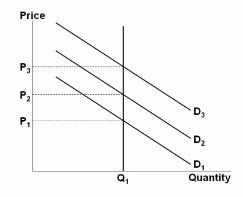You have paid all expenses to travel to your favorite beach for a vacation. You made these payments early in order to receive a discount and all payments are nonrefundable. Unfortunately, a hurricane is likely to crash into the coast during your vacation dates. What should not be considered as you make a decision to take your trip or not?
A. The money that has already been spent on the trip
B. The satisfaction you are likely to receive at the beach during a hurricane
C. The best alternative use of your time if you do not take the trip
D. The additional costs you didn’t anticipate while on the trip.
A. The money that has already been spent on the trip
You might also like to view...
The U.S. economy has been more stable since 1950
Indicate whether the statement is true or false
Which bond would someone in a 35% tax bracket choose to buy: a municipal bond with an interest rate of 7% or a corporate bond with an interest rate of 10%?
What will be an ideal response?
Julie is in the 28 percent tax bracket. She earns an 8 percent rate of return after taxes on a tax-free municipal bond. What will the after-tax rate of return be on a taxable bond (with equal risk)?
A. 36 percent B. 28 percent C. 14 percent D. 8 percent
Refer to the figure. Assuming this market is representative of the economy as a whole, a positive demand shock will:

A. increase both the price level and the quantity of output produced.
B. increase output but leave prices unchanged.
C. lower the price level but leave output unchanged.
D. raise the price level but leave output unchanged.